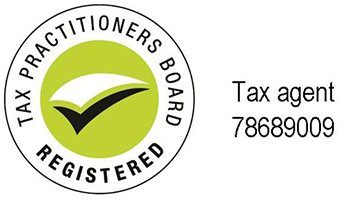Taxpayer slammed by benchmarking audit
Editor: In a recent case, the AAT has affirmed the ATO’s ability to use benchmarks to amend a taxpayer’s return where their record keeping was found to be insufficient and lacking.
The cost to this taxpayer of having poor record keeping practices was about $130K.
Facts of the Case
The taxpayer, a Mrs Carter, carried on a florist business in a suburb of Perth, WA.
Her 2008 income tax return reported a cost of goods sold (COGS) of $259,982 and “Total business income” of $313,971.
In September 2010, the ATO advised that her activity statements and income tax return for the florist business for the 2008 income year would be subject to audit, on the basis that the COGS for the Florist Business represented 83% of her reported business income.
This was outside the ATO’s COGS industry benchmark percentage range of between 44% and 54%.
In the same letter, the ATO requested that she provide it with evidence that she was correctly recording and reporting her business income for the florist and an explanation as to why her business was reporting outside the benchmarks for her industry.
In addition, for the June quarter 2008, the ATO requested:
- sales records, such as invoices, receipts, cash register journal rolls, and point of sales system print outs;
- any reconciliations of sales records/ cash book, etc., to bank deposits. The reconciliation should show amounts not deposited to business accounts and amounts used for drawings, wages and other cash expenses;
- any reconciliations between the cash book, bank statements and the amounts reported on her BAS at label G1; and
- copies of all bank statements.
The taxpayer’s tax agent provided deposit slips and bank statements for the period but was only able to supply:
- a spread sheet summary of cash register rolls for the period 5 April 2008 to
30 June 2008; and
- cash register roll receipts for the period 9 May 2008 to 17 May 2008.
In the taxpayer’s defence, he also advised that:
- shortly after Mrs Carter purchased the business, the supermarket in the same shopping complex started selling flowers;
- Mrs Carter had to reduce her prices to compete therefore her pricing has been on an ad hoc basis; and
- her till was never working properly and the roll would never follow through correctly and constantly jammed.
The ATO advised the taxpayer that, as she had forwarded only partial ‘Z summaries’ of her till tapes and failed to reconcile her cash takings, it had applied the COGS benchmarks for the florist industry, increasing the income of the florist business by more than 50%.
This resulted in a shortfall of income tax of $57,389 and a shortfall of GST of $16,745.
The ATO initially applied penalties of 75% in relation to the shortfalls, of $43,042 and $12,558 respectively.
This was later reduced to 50% on objection.
Editor: For interest’s sake, it seems that the taxpayer may not have taken this all too well as, on appeal to the AAT, she applied to include additional grounds including that "The Commissioner breached the APS Code of Conduct and Federal Criminal Law by committing fraud, dishonesty and lack of care and diligence." Since we don’t know if the ATO has yet to review the 2009, 2010, 2011 and 2012 returns and BAS statements, that might have been a little ill-considered. Still, to each their own.
The Decision
Very little further evidence was provided to the hearing and neither the taxpayer nor any other witnesses appeared.
Based on the evidence before it, the AAT considered that Mrs Carter failed to prove positively, on the balance of probabilities, that the relevant assessments were excessive.
The AAT found that the evidence provided did not prove how Mrs Carter calculated the gross income of the florist business for the year ended 30 June 2008 and, in particular, the cash component.
Consequently, the AAT decided that, in the circumstances, it was open to the ATO to exercise its discretion and apply the COGS small industry benchmark range (of 44% to 54%) for the florist industry and increase the income of the florist business for the 2008 year and, therefore, increase Mrs Carter’s income tax and GST liabilities in respect of that year.
Ref: Carter v FCT [2013] AATA 141
Record-keeping – What the ATO expects/ demands
Editor: The following is an excerpt from TR 96/7, that outlines what the ATO actually expects of taxpayers. In view of the support given to benchmarking by the AAT and the Courts, members might consider warning
clients of the implications if they can’t comply.
Paragraph 13 of TR 96/7 states:
"……we accept that a person may discard the rolls of tape after one month provided that the person has reconciled the “Z-totals” with actual cash sales and bankings for that period. The reconciliation must take into consideration any cash earned that the person used for other persons, e.g., personal drawings, minor purchases, etc. The person must keep the reconciliation for the statutory period (5 years). We consider that it is necessary for the person to keep the one month representative sample so that the ATO staff can verify that the “Z-totals” are an accurate summary of every individual transaction that relates to the person’s income and expenditure. The representative sample of the rolls of tape enables ATO staff to analyse more accurately whether a person has reconciled the bankings with the “Z-totals.” If a person does not do a reconciliation, the person must keep the rolls of tape for the statutory period (5 years)”.

